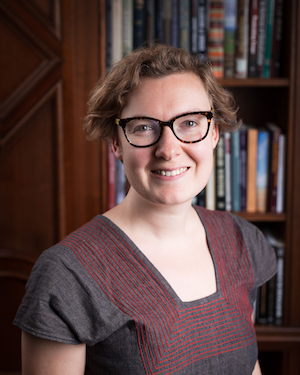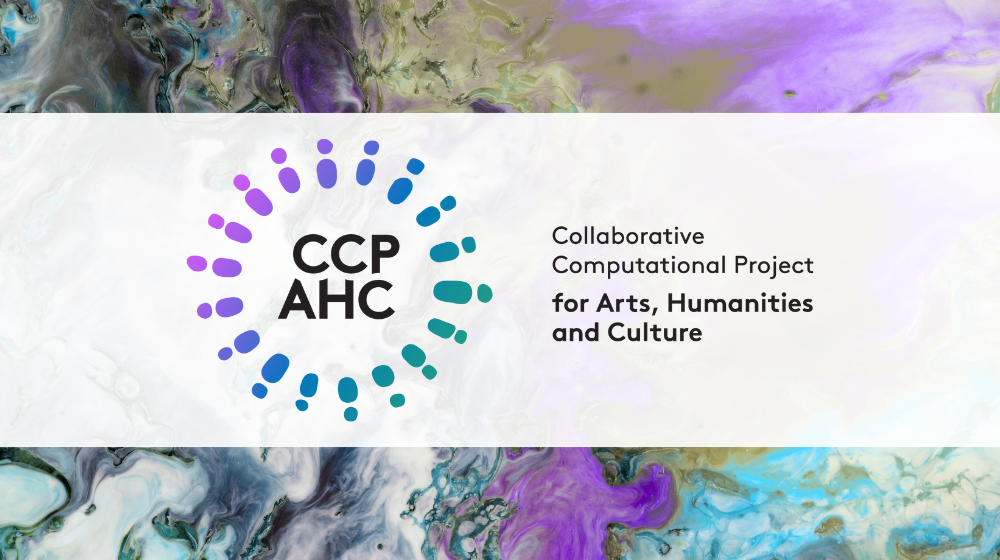Thanks to Software Sustainability Institute funding, I attended the first Town Hall meeting for the recently UKRI-funded Toward a new CCP for Arts, Humanities, and Culture research (CCP-AHC) project. CCP-AHC is principally focused on strengthening knowledge about large-scale compute (or high performance computing) and other advanced digital research infrastructures (DRI) for research software in the arts and humanities developed in the UK. The Town Hall focused on soliciting ideas, questions, and updates from scholars in these fields already engaging with DRI resources. I attended the meeting as the director of the MapReader software library, but also with my hat on as an SSI Fellow interested in the broader concerns around research software development and maintenance in the humanities.
But what is a CCP and why are arts, humanities, and cultural heritage researchers moving towards this? “Collaborative Computational Projects” are funded by UKRI councils and administered by the Computational Science Centre for Research Communities (CoSeC) programme within UKRI’s Science and Technology Facilities Council. CCP-AHC was funded by a 2024 call designed to prepare new scholarly communities to apply for CCP funding in 2026. For the first time, potential future CCPs within the remit of AHRC and ESRC were eligible. As one of 6 new communities, the remit of CCP-AHC is above all to develop a roadmap and plan for the new CCP. In short, CCPs provide long-term funding for academic communities whose work depends on collectively used and maintained sustainable research software. For arts and humanities researchers to have access to such support would be a major stepping stone towards better national recognition of the computational needs of these disciplines.
Led by Eamonn Bell (Durham) with co-leads Karina Rodriguez-Echavarria (Brighton) and Jeyan Thiyagalingam (STFC), at the heart of the CCP-AHC is the issue of scaling up arts and humanities compute activities. As the UK invests in compute, it has been rare for humanities scholars to join the queues waiting to get access. When the MapReader team applied for access to the Bristol-based Isambard AI for some large-scale data processing tasks, we were welcomed with open arms as a novel use case in the humanities. Throughout 2024 and 2025, we used Isambard AI, Baskerville, the N8 Bede, and Lancaster’s HEC for a range of MapReader tasks. For example, for the “Landscape Change and Conservation with MapReader” project at Lancaster, Computational Environmental History Research Associate Kirsty Lilley created the UK’s first open-access datasets of historical vegetation and other landscape features from nineteenth-century Ordnance Survey maps in collaboration with the Peak District and South Downs National Parks (data paper forthcoming!). Simultaneously, we were also using Baskerville for large-scale text processing tasks with historical newspapers (for the now concluded Living with Machines and Data/Culture projects at The Alan Turing Institute). Indeed, because of her work with HPCs for the computational analysis of maps and newspapers, our Turing colleague Rosie Wood was honoured as one of the “Women in HPC” at SC2025 (SuperComputing: The International Conference for High Performance Computing, Networking, Storage, and Analysis).
For scholars to engage with big collections of historical sources that have now been scanned as images, and sometimes further digitised as structured or unstructured data, access to advanced computing resources is essential, and the CCP-AHC can address these needs in a coordinated fashion. With MapReader, and with the Living with Machines newspaper work, we learned two lessons the hard way:
- Assuming you will process data on your local machine puts strict limits on your dataset processing capacity, and for many colleagues without access to a powerful local computer, this is indeed out of the question. We knew we wouldn’t be using local compute for a lot of work, but it did create barriers within the team because core big data sets could be harder to access, sample, and explore from cloud storage locations.
- Levelling up to using cloud-based virtual machines is extremely costly. For what we spent on commercial cloud-based compute and storage, we could have extended contracts or hired new team members. At the beginning of Living with Machines (ca. 2019), there was no alternative, and by the time we did have access to other, HPC infrastructure (e.g. Baskerville), we did not have time to rewrite code to work in a new environment or permission to move certain data.
I’m thrilled that colleagues across the UK might, through a new CCP, work together to avoid missed compute opportunities, develop HPC skills, and ensure HPC access. CCP-AHC has rightly identified knowledge about large-scale compute as a blocker to novel computational research in AHRC disciplines, but I would also highlight that this is not the only infrastructural challenge we face. From the lack of a robust, central data service for arts and humanities data to the importance of embracing and maintaining minimal computing workflows (in particular because these are more accessible to students and collaborators who do not have access to HPCs). But perhaps above all, there has been simply a dearth of opportunities to maintain humanities and arts research software as open-source projects. Older CCPs have used STFC support to ensure that key software can live on past its initial development funding. SSI’s Research Software Maintenance Fund offers one solution to this funding gap, but the long-term support of a CCP is unique in the UK. As it develops the roadmap for the future CCP, this is an exciting moment to see how the CCP-AHC leads and the broader community wish to shape computational research infrastructure for the arts and humanities going forward.
If the first Town Hall meeting opened up many perspectives on what we lack in terms of support for building capacity around DRI and sustaining software in the arts and humanities, future events will collect evidence from colleagues based on where they are at now. The CCP-AHC team is collecting information from UK colleagues about research projects using computational resources at all scales. If you’d like to learn more and potentially submit evidence about your own work, check out the details on the dedicated webpage.


